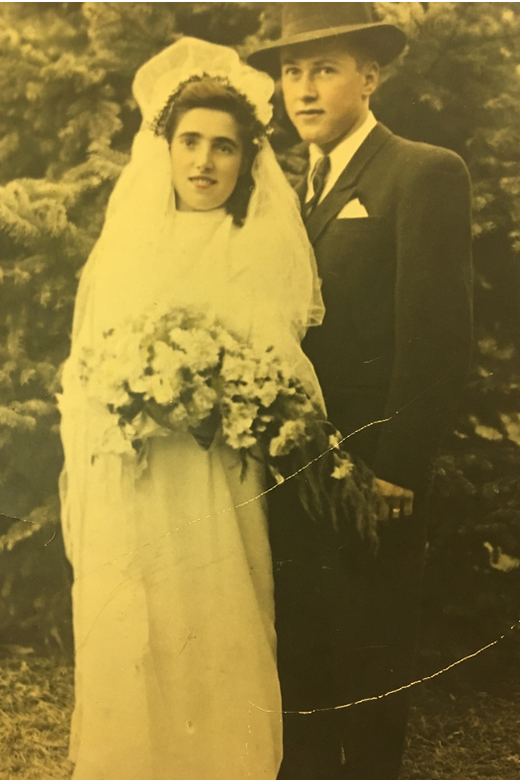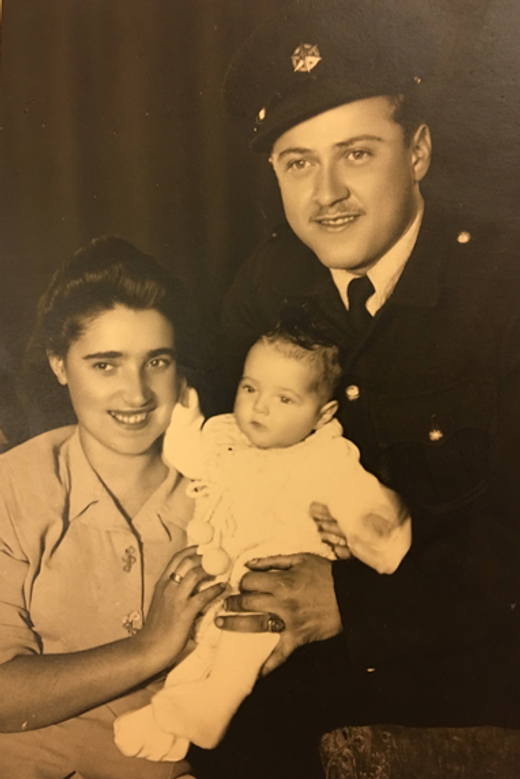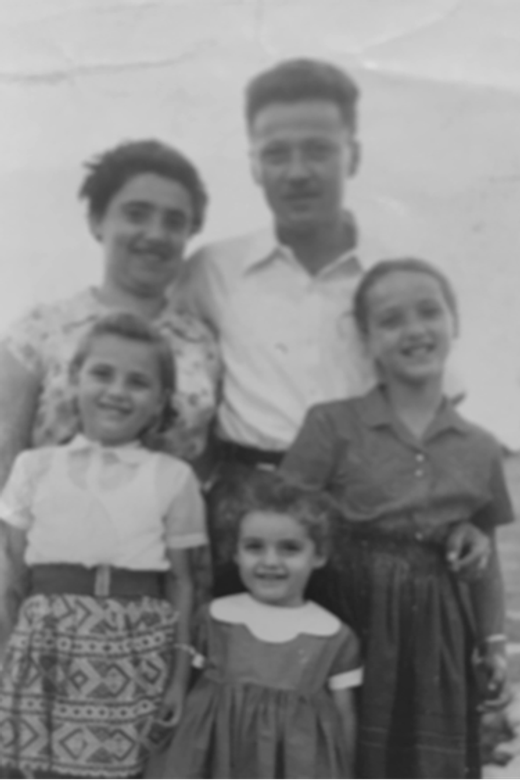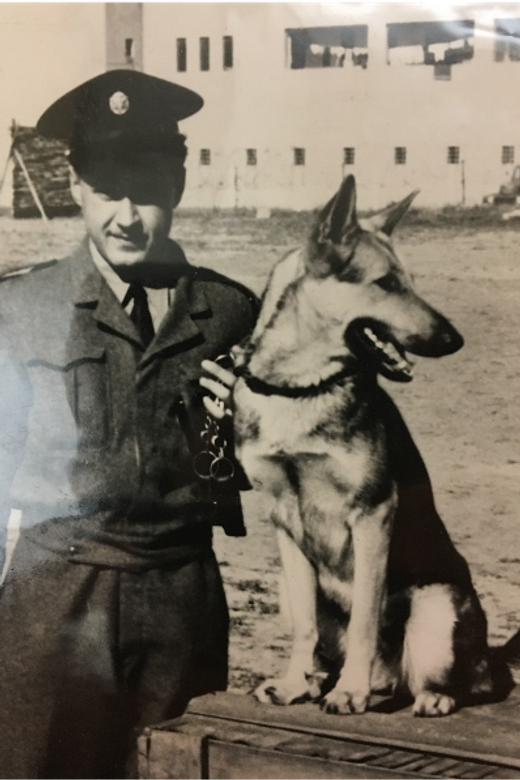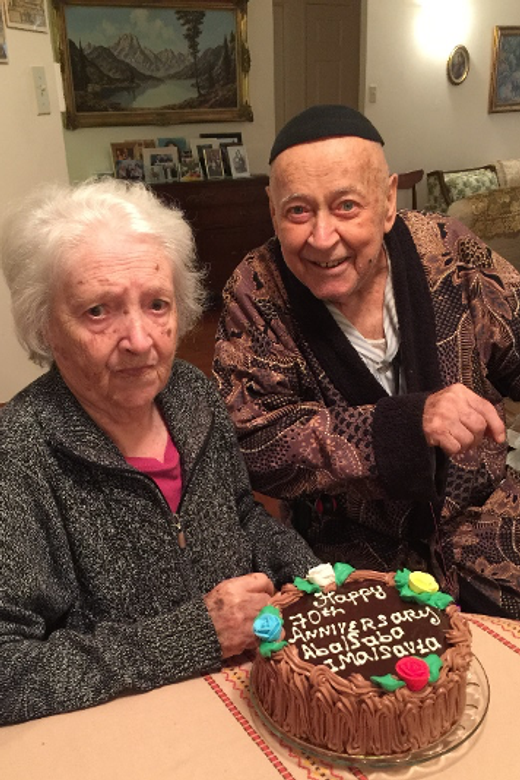Israel Schapira
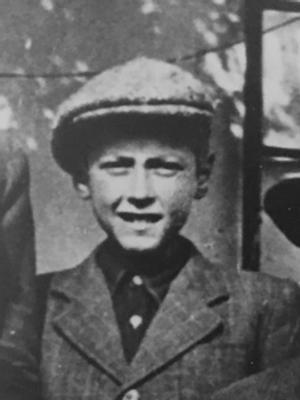
Born: Plechotice, Czechoslovakia (now Slovakia), 1925
Wartime experience: Camps
Writing Partner: Gloria Draper
Israel (Zoltan) Schapira was born in Plechotice, Czechoslovakia (now Slovakia), in 1925. In 1935, Israel and his family — his parents and his five siblings — moved to Trebišov, Slovakia.
Between 1939 and 1941, the Slovak regime, which was allied with Nazi Germany, increasingly enacted anti-Jewish laws. In March 1942, when Slovakia began deporting its Jewish citizens, Israel’s older sister, Aranka, was deported to Auschwitz-Birkenau. In May 1942, Israel was deported, along with other members of his family; he and one of his brothers were sent to the Majdanek concentration camp and death camp. A few months later, Israel was deported to Auschwitz-Birkenau. After almost a year of hard labour, and narrowly avoiding death, Israel bribed his way on to a transport to Warsaw, where he was part of a work detail sent to clean up the ghetto. He was next sent to Dachau and then to the subcamp of Waldlager, from where he was liberated in early May 1945. After liberation, Israel returned to Trebišov, where he reunited with his surviving sister, Aranka, and met Hadassah Rosner, also a survivor. Israel and Hadassah left Trebišov and stayed in displaced persons (DP) camps, marrying in Munich in 1947. In May 1948, they immigrated to Israel, and in 1959, they moved to Canada with their three daughters, first to Montreal and then to Toronto ten years later. Israel Schapira passed away in 2018.
The Wheatfield
My family was a typical Orthodox family and we spoke Yiddish at home. In the morning we prayed, ate breakfast and went to school. On Fridays, in preparation for Shabbat, my mother made cholent, and on Shabbat we rested and went to shul. My extended family lived in different cities.
Sometimes on Saturdays, in the afternoon, I would go to the wheatfield that was half a mile away, and I would lie in nature; the wheat moved quietly and lying in it was something special, something I loved and can’t forget. I would read all kinds of books; one I remember is the short story by Nikolayevich (Leo) Tolstoy called “The Snowstorm.” I also read novels by the American author Upton Sinclair, which were translated into Czech.
In Plechotice I attended public school on Main Street. Jews and gentiles went to public school together from 8:00 a.m. to 1:30 p.m. In the afternoons, a private tutor hired by my parents taught me Lashon Hakodesh (the holy language) — biblical Hebrew prayers, reading and Torah.
In 1935, when I was ten years old, my family moved to Trebišov. I attended public school for Grades 4 to 8, and in 1940 and 1941, I attended a public high school for Grades 9 and 10. But starting in September 1941, Jewish children were no longer allowed to attend public schools in Slovakia. The Jewish community created a makeshift school in the city for the Jewish children to attend. In early 1942, I still continued to go to school; however, all the Jews had to go to the cheder only. Teachers were brought from all over and school was not the same — grades were combined and school was just about passing the time. I remember that I was a bit mischievous and always in trouble; I would get punished and I would do it again! Maybe that’s why I survived the Holocaust. If you always followed the rules, you couldn’t survive.
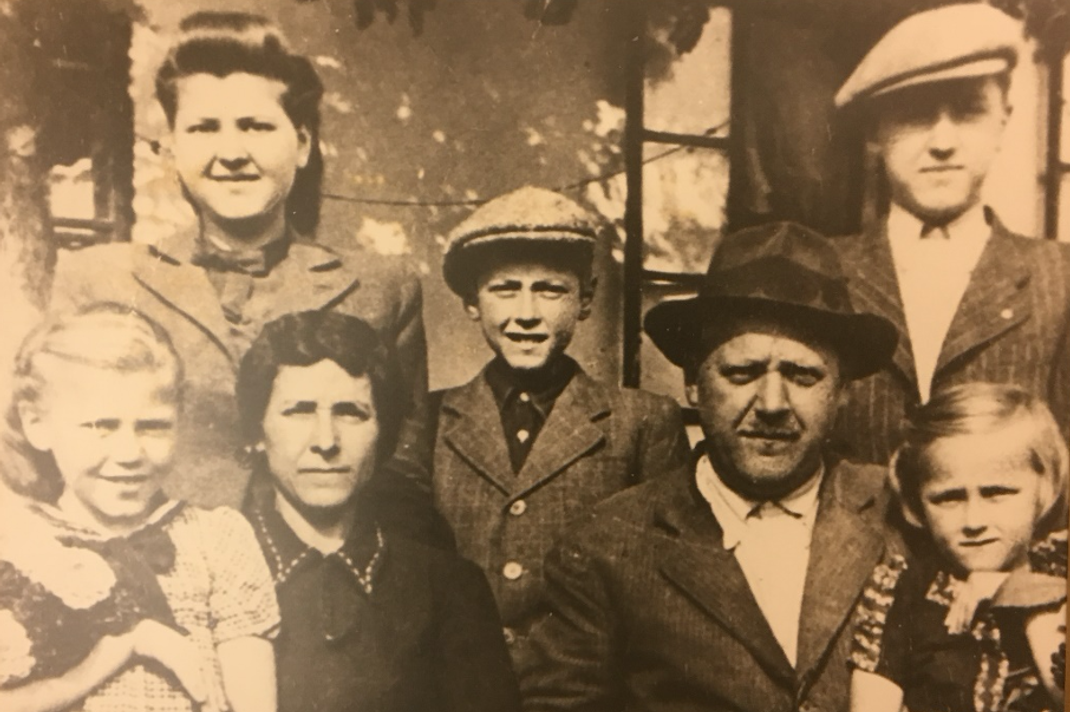
In Majdanek
In March 1942, Hlinka Guards, part of the Slovak military, arrived at our door. My older sister, Golda (Aranka), who was eighteen years old at the time, was told to pack a suitcase and she was taken away with other single Jewish women of the city. Our family was not sure where she was being taken. The youth who had been deported were forced to send postcards home to their parents advising that all was well with them, perhaps in order to alleviate their parents’ anxiety. To try to truly explain their situation, my sister described life at the camp of Auschwitz-Birkenau, where she had arrived, as follows: we eat like on Yom Kippur; dress like on Purim and live like on Sukkot — meaning there was a shortage of food, or none at all, like on Yom Kippur; they were dressed like clowns on Purim; and they lived in places like huts on Sukkot.
Around this time, almost all the Jews were ordered to pack one suitcase of belongings, which could weigh twenty-five kilograms. We were rounded up with the rest of the Jewish families and taken to the train station, where we were sent to a transit camp. In May 1942, we were loaded from there onto army trucks and then onto freight trains. I was with my father, my mother, my two younger sisters, Tziporah and Leah, and my brother Moritz. My brother Ignatz was in Romania during this time. We travelled for two days by train, in tightly closed, crowded cattle cars, to Lublin, Poland. The cars had no sanitary facilities and we received no food or water. We were not told where we were going.
At the Lublin train station, soldiers in SS uniforms called for men between the ages of fifteen and forty-five to get off the train. Moritz and I were in that group and were taken to Majdanek, just outside of Lublin. The train with everybody else on it, including the rest of my family, continued on. This was the last time I saw my family. I much later met someone who told me that he had seen my family. He said that they ended up in a ghetto called Lubartów in Poland.
A few days after we arrived in Majdanek, a group of prisoners was selected and taken to work in a factory. My brother Moritz was a tailor and they needed tailors in the factory to make gloves for the German soldiers fighting in the Soviet Union. I was able to go with my brother, and I helped move the gloves from one place to another. In the camp, other people were carrying stones, making a road or digging. It was much more demanding work.
Each morning we got up and were supposed to get tea or coffee, but we didn’t always get it. Each barracks had to go get their own coffee and many times the prisoners didn’t bother. Prisoners had no strength, and coffee often got spilled on the way to the barracks. After breakfast we went to work. At lunchtime we received some barley soup, which was okay and was warm. In the afternoon we got nothing to eat.
At work, because I was taking gloves from one place to another, I got to see that the Germans were bringing beets to feed the horses. They would bury them in the ground and cover them with straw in an area outside the factory. I would go and take some. Once, a Ukrainian soldier saw me digging up the beets. He didn’t have a weapon but he chased after me. I was too fast for him, and when I got to the barracks I unloaded the beets on someone there. As a result, I then had nothing to eat.
During my time in Majdanek, the guards tried to make life as unbearable as possible for the prisoners. Their cruelty, savagery and brutality knew no bounds. The biggest enjoyment the Germans had was in creating “games” for the prisoners, to pass the time. During one of these “games,” a soldier would throw bread over the fence and then hundreds of prisoners would run in the mud to get the bread. In reality no one got the bread because it fell to the ground and was mashed in the mud. At least fifty prisoners were trampled and died, stepping on one another. I never ran for the bread. I ran away from this.
When I was with Moritz, I would help him by telling him where to go because he was a very fine person, more aristocratic than I was. I was more observant; I’d look around to see what was happening around me and I helped to make sure he was okay.
In the camp, we prisoners mostly talked about food because we were always hungry, and about home. We were still wearing our own clothes. We were not able to do anything related to our religion or Jewish practices, although some people did pray quietly on their own. If you smuggled in a prayer book, like I did, you could read it if the Germans didn’t find it. If they found it, you got punished either by the withholding of food rations or by getting a beating.
I really didn’t know what to do; my options were bleak. The next morning, after roll call, I decided to hide in the barracks’ wooden ceiling panels.
To Live Another Day
When I came to Birkenau, I worked straightening up the grounds and digging. Every morning, at six or seven, the Germans came and took us to do this work. The daily count, the Appell, was done. Sometimes it would take an hour or longer because some prisoners had died, could not stand up or were hiding. It could take a long time until the Appell was concluded and the numbers were balanced and correct.
The prisoners at work were always watched by SS with machine guns. We were surrounded. We had to dig pits eight feet wide and eight feet deep. The pits became longer and longer, continuous. This was a large grave where the Germans brought prisoners and buried them. In the beginning we didn’t realize what the pits were for.
Often two hundred prisoners went out in the morning to work and only eighty or one hundred came back; at night prisoners would just be shot. The dead prisoners were brought back in wagons pulled by the surviving prisoners. The same number of prisoners who left the camp in the morning had to be accounted for at the nightly roll call, dead or alive.
Armed SS guards, with machine guns and some attack dogs, surrounded our whole work area. Like in Majdanek, the guards were always playing deadly games for their own entertainment. One SS guard would call a prisoner to come over to him, while a second guard would tell the prisoner to stay where he was. If the prisoner didn’t go, he would be shot by the first guard; if he did go, he would be shot by the second guard. It was a game to them.
On my second day on the job, a German guard from another squad ordered me to come to him but my guard ordered me to stay where I was. He was shouting, “Go!” and my guard was shouting, “Stay!” I did not know what to do; I leaned on my shovel and just stood there. I did not move. I did not know what to do because it did not really make a difference. I was doomed either way. I had already seen this situation played out. Some of the dead prisoners who were brought back to camp from the day before had been killed in this manner.
The head boss over the SS German guards who were guarding the work squads at this job site was there inspecting the guards to make sure they were doing their jobs. In a low voice, my guard ordered me to go with the head boss. I walked toward him, not knowing who he was. The taunting guard was still shouting at me, asking why I did not go to him as ordered. The head boss asked me the same thing, and I replied, in German, that the other guard had not let me. He asked me who and I pointed to my guard. He then said to the taunting guard, “Er ist dumm (he is stupid), leave him alone.” He asked how old I was, and I already knew that whatever number I stated would be the number of lashes I would receive as punishment. So I replied that I was fourteen even though I was actually seventeen. I was told to bend down, and I received fourteen lashes with a stick to my behind.
When I returned to my work squad, my guard told me to go down to the bottom of the pit and sit down. I was stunned because I had never before seen any guard help a prisoner. I sat down at the bottom of the pit, and a short while later the guard came and handed me two slices of bread with margarine. He conversed with me in my native Slovak language and told me he was also from Czechoslovakia. Most of the transport that I came with from Lublin was from Czechoslovakia, and part of that same group was still here working in the pit. Even though we were not allowed to talk to each other while working, we did manage to communicate here and there. This guard had previously overheard us conversing and he knew I was also a Slovak and that is why he saved me.
In Slovak he advised me not to come back to the pit tomorrow. “From this place nobody leaves alive,” he said. “It is just a matter of time. You saw what happened to you here today. If you come back tomorrow, you will be under another guard and the guard from yesterday's incident will probably kill you. I will not be able to help you.”
At night we returned to the camp. It was not an easy proposition for me not to go back the next day. I was not in control of the situation and could not make those kinds of decisions — they were forced upon me. We did not choose where we wanted to go to work. Every morning we had to line up at the roll call and decisions were out of our control. But I understood that if I kept going to the pits I would be killed. Therefore, it was better for me to take chances and do anything not to return to the pits, even if I died here at the camp where I had a slim chance of surviving.
I really didn’t know what to do; my options were bleak. The next morning, after roll call, I decided to hide in the barracks’ wooden ceiling panels. I crawled in and hid in the ceiling. The procedure in the Lager was that if anyone stayed in the camp and did not report to work, that meant he was sick. These prisoners were then collected in a sweep of the barracks and sent to die. While I was up in the ceiling I heard the commotion beneath me of those prisoners being collected. I also overheard that they had discovered that I was missing. They called out my number, 37128, in German. They were looking for me and screaming for me, but I stayed there in the roof. I did not come out of hiding.
At the night roll call, when the SS were counting everyone, their total count was correct. They immediately knew that I, the previously missing prisoner, was back. At this point I could not hide anymore. I had to answer when they called my number. I came forward and was asked where I had been. I replied that I was not feeling well and that I was in the toilet. They hauled me away. I received twenty-five lashes on my behind with a wooden pick handle.
I still considered myself lucky even though I could not sit down for three months. Usually, if a prisoner received twenty-five lashes, he was made to kneel beside a backless chair, head on the knees with hands behind the head. Someone would sit on his calves, to prevent him from moving. The guards then proceeded to hit the prisoner very hard, on the neck, with the wooden pick handle. This would cause the prisoner to die. I don’t know why, but that was not done to me. I received the twenty-five lashes, but they did not kill me. Once again, I had survived to live another day.
***
From the transport of one thousand prisoners who arrived with me from Majdanek, only thirteen survived. Not necessarily the smartest or fittest or the ones who obeyed all the rules. Take me, for example — I was physically small and skinny. I was told I could not work as I did not look physically strong. In the morning while the music played, and before the group of workers left, the Lagerkapo made the daily selection as to who was fit to send on a work detail and who stayed at the camp and was subsequently sent to be killed. He carried a stick with a curve on one end and every day, if he saw me, he would extend the stick and roughly yank me out of line. I would go flying, but as soon as I saw he was occupied with pulling out someone else from the line, I would sneak back into the line at a different place, once the line had started marching out of the camp. Sometimes he caught me a second time and I was beaten with the stick. That did not prevent me from sneaking out repeatedly when the opportunity presented itself. I knew that if I was left in camp, it was certain that I would be sent to my death.
Our destinies were driven by some external force and much luck. Every day we saw fellow prisoners die and every day we helped carry back the dead bodies to the camp. Every day one had to go through the process of making new friends. I always had new friends. We had to make friends and help each other.
This was our daily existence. I never believed I would survive, but I was still a bit naive and a little optimistic that maybe, maybe, I would live a bit longer.
